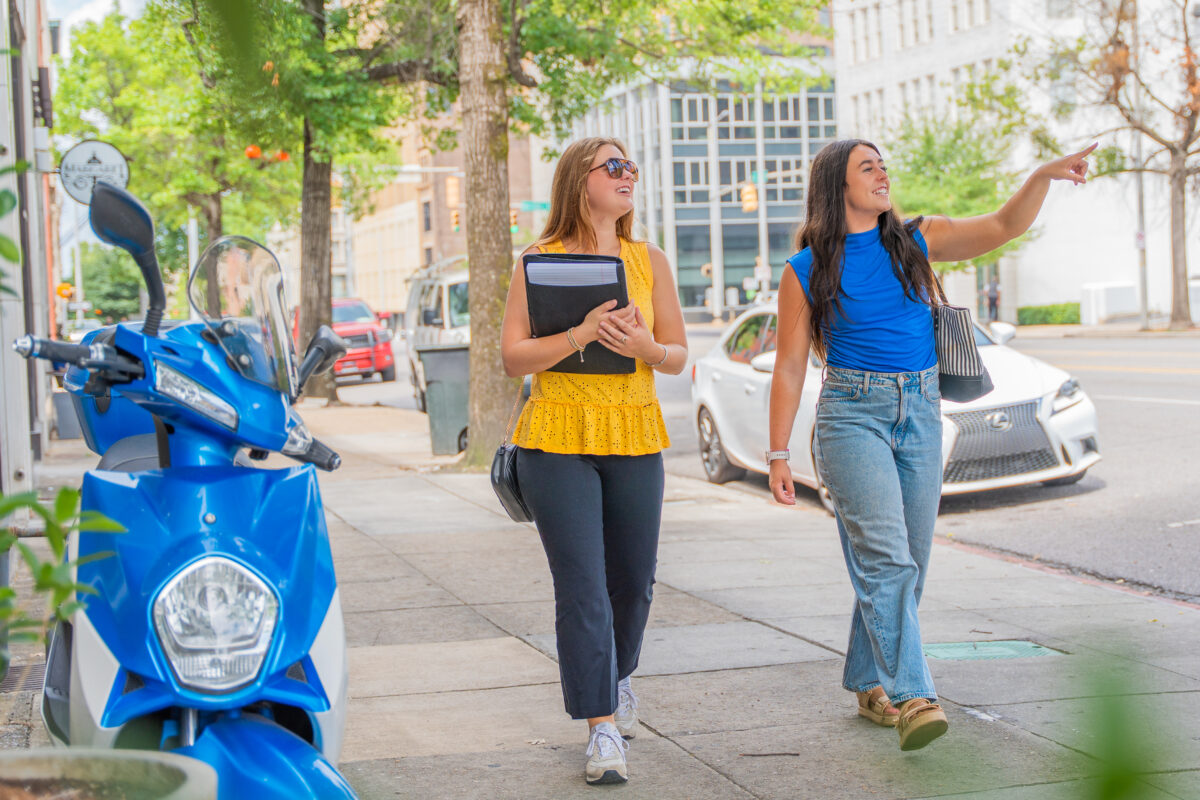Reviewed by: Nathan Watson
How can Alabama create jobs and fight inflation? By supporting solar power. Find out more.
Reading time: 6 minutes
Sponsored

“I’d put my money on the sun and solar energy. What a source of power! I hope we don’t have to wait until oil and coal run out before we tackle that.” ~Thomas Edison confided to Henry Ford in 1931
91 years after Edison’s solar power declaration was captured in James D. Newton’s memoir Uncommon Friends, much of America is finally following his advice, with one exception. Alabama.
Need evidence? In my recent interview with Sam Yates, CEO of Eagle Solar & Light—a regional solar power company based in Birmingham—he told me this jaw-dropping fact.
According to recent studies, the states of North Carolina and South Carolina each have over 21,000 homes and commercial operations with solar panels on their rooftops. Alabama has a paltry 500, more or less.

“Alabama is ranked in the bottom 5% in the nation for installed solar,” said Yates. “And get this—North Carolina, Florida, Texas, are number two, three and four right behind California. It’s all a factor of regulatory disposition.”
What does ‘regulatory disposition’ mean? To understand it, you’ll need a quick primer on The Alabama Public Service Commission (PSC).
PSC 101

Ask your average Alabama citizen about the PSC, and you may get a few comments about seeing some political signs around election season, or names on a ballot. But let’s be honest, very few people can name the three elected members of the PSC (Twinkle Cavanaugh, Jeremy Oden & Chris “Chip” Beeker), let alone describe their job.
It may be one of the most obscure—but one of the most powerful—state agencies in the Alabama government.
The Work
Why do we have a public service commission? PSCs exist in nearly every state in the union. Their job? To hold monopolies accountable and to make sure that their services are offered a fair and reasonable cost and don’t abuse customers.
Established to regulate the railroad monopolies a century ago, the PSC sets the guardrails for today’s modern monopolies by approving prices and enacting policies. Since this story is about solar, we’ll focus on the PSC’s influence on electric utilities. (They also regulate telecommunications, wastewater, transportation (like UBER and Lyft) and natural gas.)
So, how does the PSC impact your life as a consumer and the kinds of electricity we all use? When you pay your electric or gas bill every month there are two main factors the PSC has considered:
- How much do you use?
- How much do you have to pay for each unit that you use?
What a lot of people don’t realize is that the PSC is the agency that sets the policies (Alabama Code Title 37)that determine exactly how much you have to pay for every single kilowatt hour of electricity, and also what the utilities have to do to deliver those kilowatt hours to you. We are talking about impacting the pocketbooks of two-thirds of Alabamians, excluding TVA, rural electric cooperatives and the Alabama Municipal Electric Authority.
The PSC also aims to simulate market conditions, because you don’t have a competitive marketplace with a monopoly. It’s their job to sit in between the customers and the utilities to hear from both sides and determine what is fair.
How much should people pay? How do you keep the power company in business while also meeting the needs for all the citizens in the state? This is the role of the PSC. Citizens can help hold them accountable by either re-electing them or firing Commissioners every four years.
Georgia PSC Made a Difference

Through rules and policies, PSCs are the ultimate key to unlocking solar power.
For example, more than a decade ago, the Georgia PSC made solar power a priority. They enacted policies encouraging residential rooftop solar and solar farms. As a result, 4,400+ people work in the solar power industry in the Peach State, while Alabama employs less than 500 people, according to the National Solar Jobs Census 2020.
PSC Can Make Solar a Priority in Alabama

How can Alabama gain momentum on solar with the help of the Alabama PSC?
- Make Solar Power a Priority: With natural gas prices soaring because of inflation, one of the most impactful anti-inflation projects the PSC can enact are policies that encourage conservation, solar power and other initiatives.
For example, PSC could remove the present monthly fees on solar power in Alabama that have made it harder for people to invest in residential rooftop solar. It is a fee that is charged to solar customers based on how much solar power is connected to the grid. Alabama is one of the only states that charges such a fee.
In the big picture, because it is local, solar could reduce strain and demand on the power grid which could save every customer money.

2. Rules Enabling Community Solar Programs: Everyone loves community gardens—right? Why can’t we do that with solar? Rooftop solar has allowed homeowners to generate their own renewable energy for decades—reducing their dependence upon grid energy and lowering energy bills. However, most people cannot afford the investment. They might be renting their home or apartment, or they want to keep existing tree coverage.
Community solar, which is presently not an option in Alabama, picks up where traditional rooftop solar isn’t available, according to the Community Solar Tracker by the Institute for Self Alliance.
It works just like a Community Garden. Through community solar, individuals subscribe to a portion of a nearby solar project and get credits on their energy bill for the electricity it produces. This enables folks who don’t own a home to benefit from solar power.
Timing is Right—Get Involved
In 2021, a poll conducted by Public Opinion Strategies for Conservatives for Clean Energy, 87% of Alabamians want their power companies to offer more clean energy sources and 83% of Alabamians believe that increasing renewable energy sources will improve Alabama’s economy.
The people of Alabama are ready for solar power.
Surely, Thomas Edison knew very little about his state’s PSC back in 1931. But I bet he would be a huge solar power advocate today.
You can get involved. Contact the PSC today —tell them you want solar. There is also an election coming up in May. Ask candidates their position on solar, advocate and vote.
Sponsored by:



